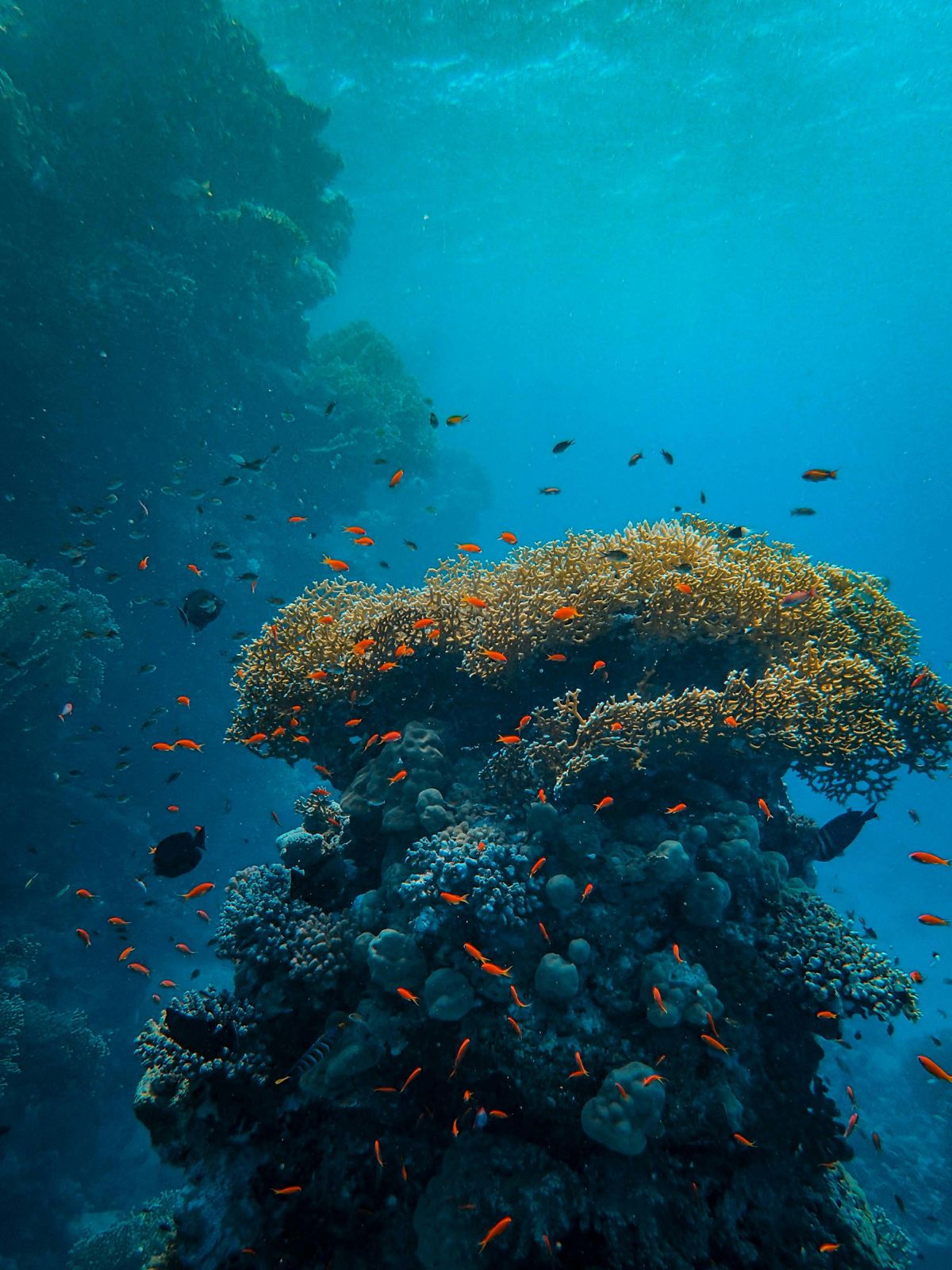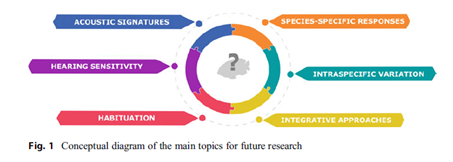
Anthropogenic noise is now recognised as a global pollutant threatening marine biodiversity. In reef ecosystems, where sound plays a crucial role in orientation, communication, and reproduction, noise from boats, coastal construction, and other human activities can disrupt essential behaviours.
In a recent study entitled “Impacts of Anthropogenic Sounds on Reef Fish”, which was published as a book chapter in The Effects of Noise on Aquatic Life: Principles and Practical Considerations (2023), Aléxia Lessa (Bioacoustics and Fish Ecology Lead at Diatom) reviews how human noise can affect fish behaviour. The study is co-authored by Viviane Barroso, Marine Bioacoustics and Oceanography Lead at Diatom Group, and Fabio Contrera, Bioacoustics and AI Lead at Diatom Group.
The chapter reviews recent findings showing that boat noise can alter fish foraging, increase aggression, and reduce larval settlement and survival rates. Physiological responses, such as elevated cortisol and heart rate, also reveal stress under noisy conditions. These effects vary across species, life stages, and environmental contexts, underscoring the complexity of noise impacts.
The authors call for integrative approaches that combine behavioral and physiological studies, as well as assessments of multiple stressors, including climate change and habitat degradation, to understand how noise interacts with other pressures. As shown in the conceptual diagram on page 6, future research should focus on hearing sensitivity, acoustic signatures, and intra-specific variation to build a more comprehensive view of how reef fish respond to a noisier ocean.

Understanding these mechanisms is essential for effective conservation and management of reef ecosystems increasingly shaped by the sounds of human activity.